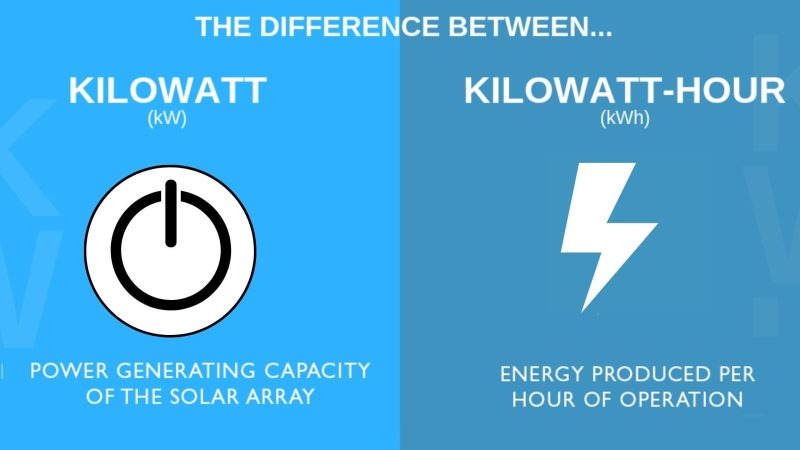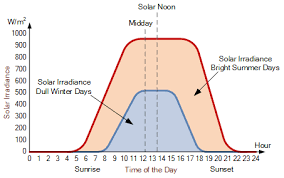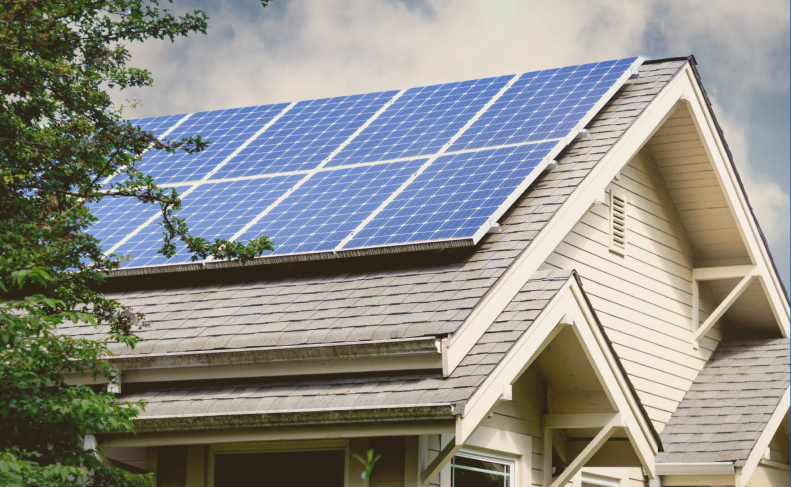It is important to know the difference between kilowatts (kW) and kilowatt-hours (kWh) ((kW vs. kWh)).
The difference between them is kW are a measure of power, and kWh are a measure of energy (output over time).
When we apply the same concept to solar, we consider the number of kW a solar panel can generate under full sun. A 10-kW solar array can generate 10 kWh if it gets full sun for an hour.
kW vs. kWh
What is a watt?
A watt (W) is a unit of power. Think of power as “the ability to do work.” Technically, a watt is a measurement of energy transfer that equals one joule per second
Watts, kilowatts, megawatts, etc
A watt is the basic unit of measurement for power but in solar power generation, we often talk about kilowatts: equal to 1,000 watts.
When we talk about electricity generation from a power plant, we multiply kilowatts by 1,000 to get megawatts.
Measuring the flow of power
The flow that is coming out is a measure of the power.
Let’s talk about watts through the lightbulb. Say a 100-watt light bulb needs that much power to glow. If you leave a 100-watt bulb on for an hour, you’ve used 100 watt-hours.
Again, a kilowatt of power (kW) is 1,000 watts, so if you leave ten 100-watt bulbs (1 kW of bulbs) on for an hour, you’ll have used one kilowatt-hour (kWh).

Watts, kilowatts and kilowatt-hours: power vs. energy
A watt is a measure of power and a watt-hour is a measure of energy, which means the amount of work done over a certain period of time.
A kilowatt is simply a thousand watts, and a kilowatt-hour is a record of an average output of a thousand watts over an hour.
kW and kWh on your electricity bill
As we use electricity, a meter is used to record the amount of power you use at all times. This will add up certain number of kWh of energy consumption at the end of the month.
At the end of each billing cycle, the company “reads” your meter and records a total for energy usage.
Say you use 1,000 kWh per month, and your electric rate is 7/kWh – your bill would be 7000, plus any additional connection and service fees.
How we use kW and kWh when talking about solar panels and home batteries
Electricity is created by solar panels when photons of light excite electrons in one layer of a panel’s surface. These electrons will travel through a wire to get to the other side by diverting that travel through your home’s wires.
Each solar panel is rated to convert a certain number of photons to electrons under full sun. The average peak power output of a solar panel these days is about 400 watts DC.
As for batteries, they use both kW and kWh. The amount of energy a home solar battery can hold is measured in kWh. But batteries need to serve that energy to the home, so the rate at which they can produce power is rated in kW.
How solar panels reduce your energy costs
Solar panels produce power to run your air conditioner, dishwasher, and other appliances and devices.
Say you live in an area with an average of 5 peak sun hours per day. Your 6-kW solar system could be expected to generate about 30 kWh of electricity on an average day or 10,950 kWh per year.







